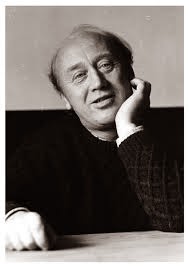While doing research (and just bumping around on the Webbernet) for this post, I found a very compelling essay by Jason Sanford, the former editor of
storySouth, a very good e-journal. I know it's not exactly what we were assigned to write about, but after reading it, it was all I could think about, and so I wrote a post about it. I'll add a link to the entire thing, but here are a few excerpts (it was written in 2004, but I don't find it to be dated):
"Here's a simple fact: no matter how excellent and mind-blowing a
regular-size short story might be, it still takes an author several days
to write it. In this same time an author can write any number of
mediocre short shorts."
Days!!! More like weeks and months in my experience. I can count on one hand how many stories I've written in just days. But, anyway, I get the point. It is easier, at least initially, to write a story no longer than 1,000 words than one that is, say, 4,000 words.
"The popular take on short shorts is that they are a reflection of our
fast-paced modern lives. This is, to put it politely, bullshit. Yes,
21st century Americans may act like none of us have any time left in
life, what with our cell phones ringing while we're using our beepers to
download e-mails from the web. But America's quickie culture is merely a
rationalization for the booming popularity of short shorts."
Charles Baxter makes this claim in the intro to
Sudden Fiction. I think there's something to it, frankly. But I take issue with Sanford's calling it a "rationalization."
And speaking of quick:
"A main reason short shorts are all the rage is that they are a quick
road to publication. After all, why write a 6,000-word short story when
you can write ten 600-word pieces in the same time?"
I'll have to side with Sanford on this one. Getting published is not the same thing as writing a successful piece of writing. If you want to get published you can get published. It's much harder writing a good story than it is publishing a bad one.
And, finally:
"When you read a book with a distinct voice (such as that of Cormac McCarthy's
Blood Meridian or William Faulkner's
As I Lay Dying), it can sometimes take pages and pages to get into the author's rhythm. No one first reads
As I Lay Dying without some momentary discomfort at the constant switching between different voices and points of views....The problem with most short shorts is not the genre—it is that they are
being written by writers who are not committed to the true exploration
of voice that's at the heart of great literature."
Is his view a bit alarmist? Perhaps. There will always be mediocre writing being celebrated for professional or political reasons. The trick is identifying quality when you come across it, and emulating that. In fact, I'd say that's one of the essential parts of writing: learning to identify quality when you see it.
Here's the link, but be warned, there's a lot of anti-MFA (and Anti-Hempel) sentiment in it:
http://www.storysouth.com/fall2004/shortshorts.html




